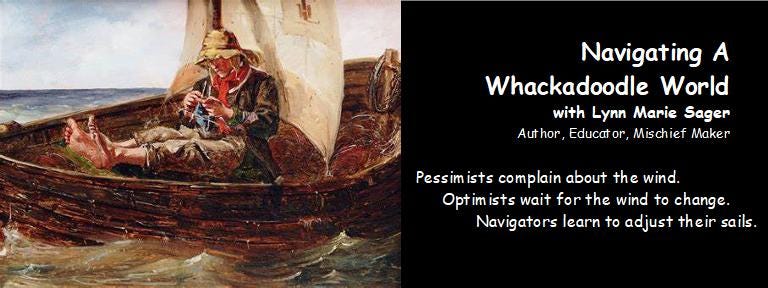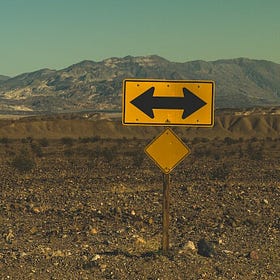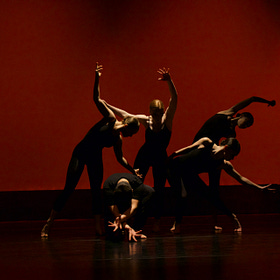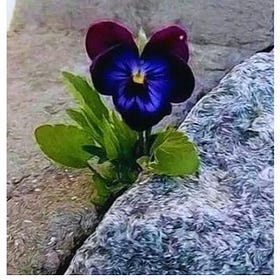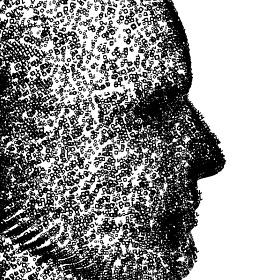Mastering Responsibility
A curated collection of articles, stories, and exercises to deepen your understanding of Guidepost Eight: The Power of Responsibility
What’s New?
Next Sunday? You might think you’re being generous—until your giving leaves you drained, or your efforts don’t seem to land. In Guidepost Nine: The Power of Contribution and Compensation, we’ll explore how life quietly balances the books. What you offer the world shapes what you receive—and what you’re receiving might be trying to tell you something about your contribution. This isn’t cosmic justice; it’s structural feedback. Reciprocity isn’t just a virtue—it’s a law. If you want a different return, it might be time to check what you’re putting in. Don’t want to miss it? Be sure you’re subscribed.
The Journey so Far
Navigating a Whackadoodle World: Episode Eight
A lot of people toss around the word “responsibility” like it’s either a punishment or a badge of honor—but Guidepost Eight: The Power of Responsibility asks something far more practical: What, exactly, are you responsible for? And maybe more importantly, what aren’t you? In this week’s dialogue, the student learns that responsibility and control exist on a sliding scale—and that the key to sanity might be knowing where you actually stand. From the extremes of blame and helplessness to the steady ground of clarity and choice, this chapter explores how language, mindset, and self-awareness shape our power. If you've ever said “He made me so mad” or “There's nothing I can do,” it’s time to rethink who’s really in the driver’s seat.
Navigating a Whackadoodle World: Episode 22, or Why does it matter how I phrase my goals?
When people talk about setting goals, they usually mean dreams: big, sweeping, vague wishes with no real plan attached. But dreams without structure have a nasty habit of turning into guilt. That’s where MASTERing a goal comes in—it’s not about forcing yourself into some rigid, joyless productivity hack. It’s about treating yourself with enough respect to set goals you can actually keep. Goals that you can measure, track, and be proud of accomplishing, no matter the outcome. Because the truth is, you don’t become who you want to be by dreaming harder. You become that person by doing.
Navigating a Whackadoodle World: Episode 37, or Truth tellers work softly, while liars won’t shut up.
It’s easy to talk about Responsibility like it’s a checklist—do your part, own your stuff, clean up your mess. But real Responsibility goes deeper. It’s not just about action; it’s about awareness. It’s about asking, again and again, “What am I contributing? What am I ignoring? What am I allowing?” In a world cluttered with labels and fogged by lies, Responsibility means refusing to let cynicism make us passive. It means choosing to stay curious when the truth is hard to find. Choosing to act with integrity even when the world seems indifferent. And yes, sometimes, it means staring at a maybe-fake flower and reminding yourself that beauty, like truth, is worth looking for—especially when it’s hard to tell what’s real.
Guidepost Eight: The Power of Responsibility (Aka Episode 51)
Ever wondered what happens when artificial intelligence tries to sum up your life’s work—and totally botches it? This week, I found out. While doing a routine website update, I made the mistake of asking Bing about my own book, Navigating a Whackadoodle World. What I got back was a swirl of whimsy, tap-dancing logic, and phrases I’d never use in a million years. So yes, I got a little pissed. Okay, more than a little. Luckily, the girl was there to talk me off the ledge and remind me of Guidepost Eight: The Power of Responsibility. Here's what happened when the bots misrepresented my message—and how I chose to respond.
Navigating a Whackadoodle World: Episode 65, The Power of Responsibility, or When your gut leads you wrong.
We like to think of bias as something other people have. The extremists. The stubborn. The ones glued to whatever echo chamber we’re not in. But bias is baked into all of us. It’s not just how we judge—it’s how we think. Cognitive bias isn’t a character flaw; it’s a feature of the brain. One that quietly shapes our reactions, distorts our decisions, and reroutes our lives. But what if we could spot it in action? What if we had the power to pause between thought and response? To question not just what we believe, but why we believe it? In this week’s exploration of Guidepost Eight: The Power of Responsibility, we look at how memory tricks, mental shortcuts, and past experiences tangle with our perception—and how we can reclaim the ability to choose our response before it chooses us.




